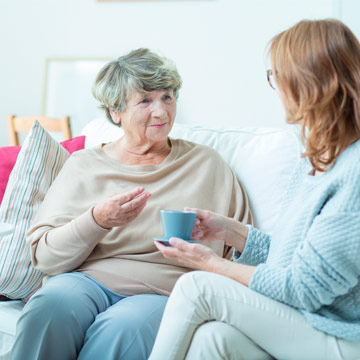Blog

Twenty practical things you can do to support someone with cancer
- Let them know you care.
- Help with errands (dog walking, groomers), house chores or with childcare, play dates and trips to and from school.
- Make a support team (try lotsahelpinghands.com) who can help with the things your friend needs.
- If you are close, offer to be the person who manages a group e-mail on what’s happening, fields e-mails and so on; it can be overwhelming (especially with so many appointments to get to). Offer to make phone calls if your friend is tired/overwhelmed/confused or needs a rest.
- Cook dinner and drop it off at your friend’s house – do this regularly and ask what the family like (and use a dish that doesn’t need to be returned).
- Ask them to do something (coffee, movie, walk, listening to 80s music) that they have the energy for.
- Get on board for fund-raising efforts that your friend is interested in. Wear the daft t-shirt.
- Think about the little things your friend enjoys which make life “normal” for them; watch a popular tv series together, have a laugh about something silly. Still invite them to things.
- Spend time with other family members (such as a partner or teenagers) so they get support too.
- Send a txt when you are at the shops to see if they need anything.
- If your friend has a child with a disability (or an elderly parent) they care for, ask how you could provide help and respite or be there at key times of the day.
- Remember it’s OK to use humour if your friend is OK with that. Losing hair and mastectomy bras can have a funny side if you’re in the right mood.
- Offer to drive to appointments, the shops, the beach or anywhere they want really.
- Be patient and compassionate – and keep it up even if it’s not easy (but don’t accept abusive behaviour – it’s just not OK, even if they are ill).
- Offer skills you have (like helping with financial, insurance, legal or tax paperwork). Let them know they are free to take you up on offers of help at any time.
- Co-ordinate groups of friends for gifts, cards or visiting.
- Give a carer/spouse/teenager in the home a break by going around and spending time or helping out, while they go out and have some space for their own life.
- Send a quick e-mail, text or message to say you are thinking of them (say “no need to get back to me” to take the pressure of them if they’re tired).
- Let them know you are “on call” for emergencies (hospital, kids, plumbing, chocolate) and mean it – show up when asked!
- Keep supporting even “after the party’s over”, most people are tired and emotional and it takes a while to start to get on top of things again.



